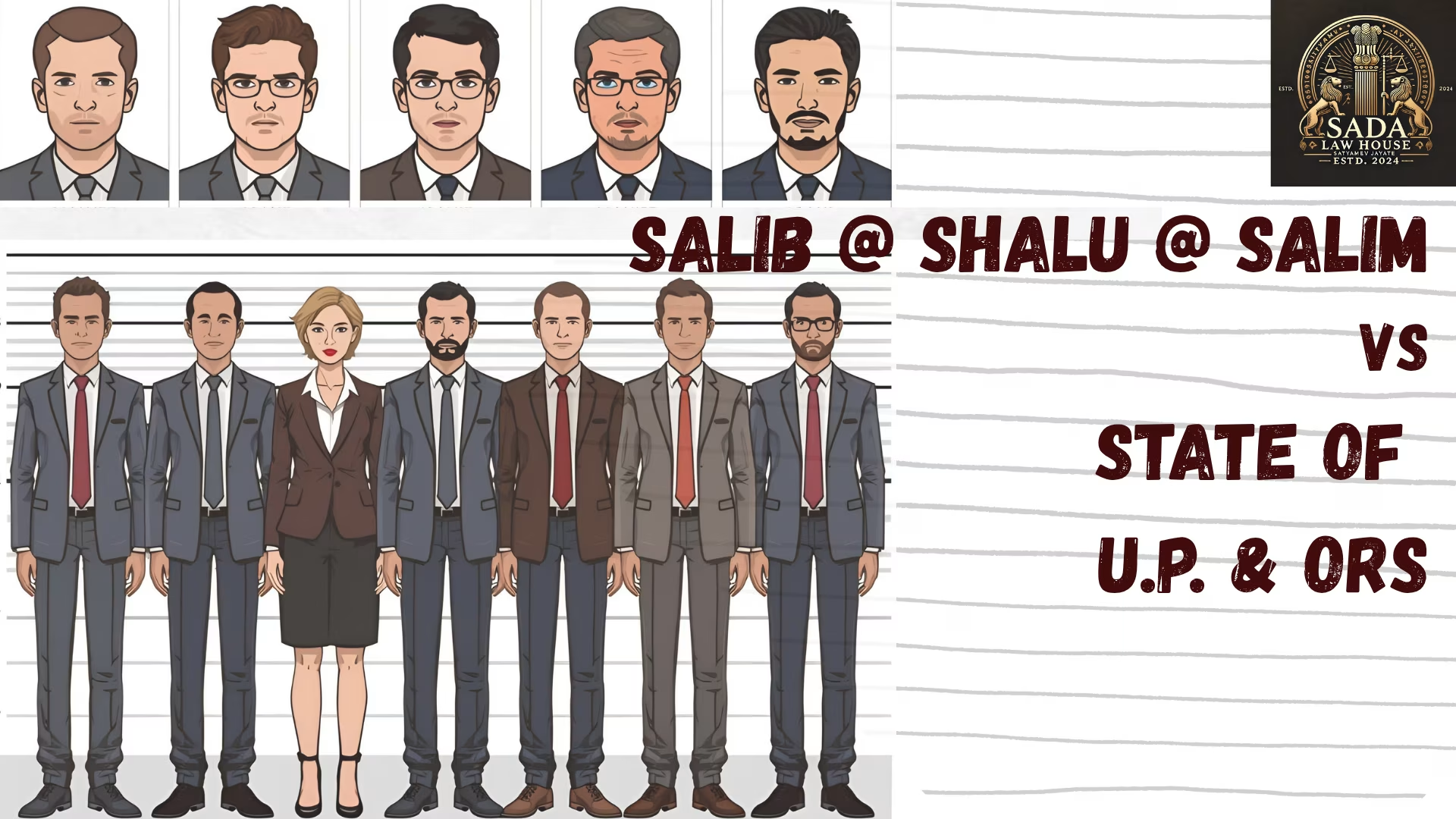Salib @ Shalu @ Salim v. State of Uttar Pradesh & Ors. (2023)
- Reha Bhargav
- 10 October, 2025

Introduction
The case of Salib @ Shalu @ Salim v. State of Uttar Pradesh & Ors. concerns an appeal filed by the accused against his conviction in a criminal case involving robbery and assault. The conviction was primarily based on a Test Identification Parade (TIP) and eyewitness testimony. The appellant challenged the legality and reliability of the TIP, alleging procedural irregularities and lack of corroborative evidence.
The Supreme Court examined whether the conviction, based mainly on a delayed and questionable identification process, could be legally sustained when no independent material evidence supported the prosecution’s case.
Facts of the Case
The appellant, Salib @ Shalu @ Salim, was accused of participating in a robbery and assault.
During investigation, the police conducted a Test Identification Parade (TIP) where certain witnesses identified the appellant as one of the perpetrators.
The trial court convicted the appellant based on the TIP and eyewitness statements, and the High Court upheld this conviction.
The appellant contended that:
The TIP was held after a substantial delay, reducing its credibility.
There was a possibility that witnesses had seen him in police custody prior to the TIP.
No stolen articles, weapons, or other incriminating evidence were recovered from him.
The eyewitness testimonies were inconsistent and uncorroborated, making the conviction unsustainable.
Issue of the Case
Whether a conviction based primarily on a delayed and unreliable Test Identification Parade, without corroborative material evidence, is legally valid and sustainable in a criminal trial?
Petitioner/Appellant’s Arguments
The Test Identification Parade (TIP) was held after undue delay, compromising its reliability.
Witnesses may have seen the accused in police custody, undermining the fairness of the identification process.
No incriminating material was recovered to link the appellant directly to the offence.
The eyewitness testimonies were inconsistent, lacked credibility, and were not corroborated by independent evidence.
Therefore, the conviction based on such weak and unverified evidence amounted to a miscarriage of justice and should be set aside.
Respondent’s Arguments
The State of Uttar Pradesh argued that the TIP and witness testimonies were credible and conducted as per law.
It contended that minor delays in holding the TIP did not render it inadmissible, especially when witnesses consistently identified the accused.
The prosecution maintained that both the trial court and the High Court had properly assessed the evidence and reached just conclusions.
Hence, the Supreme Court should not interfere with concurrent findings of fact merely because of procedural irregularities.
Judgment
The Supreme Court held that the Test Identification Parade (TIP) was conducted after a significant and unexplained delay, diminishing its evidentiary value.
The Court reaffirmed that identification in court, following a delayed and unreliable TIP, cannot by itself form the sole basis for conviction.
It noted that no stolen property or weapons were recovered from the appellant, and there were serious inconsistencies in the prosecution’s case.
The Court emphasized that proof beyond reasonable doubt is essential in criminal trials, and in this case, the prosecution failed to meet that standard.
Consequently, the Court allowed the appeal, set aside the conviction and sentence, and acquitted the appellant.
Conclusion
The Supreme Court allowed the appeal of Salib @ Shalu @ Salim, holding that his conviction was based on weak, uncorroborated evidence and an unreliable Test Identification Parade. The Court reiterated that procedural fairness and corroboration are crucial to criminal justice, and mere suspicion or delayed identification cannot substitute for solid proof.
Accordingly, the conviction was quashed, and the appellant was acquitted — reinforcing the principle that “suspicion, however strong, cannot replace proof beyond reasonable doubt.”
Case Laws






